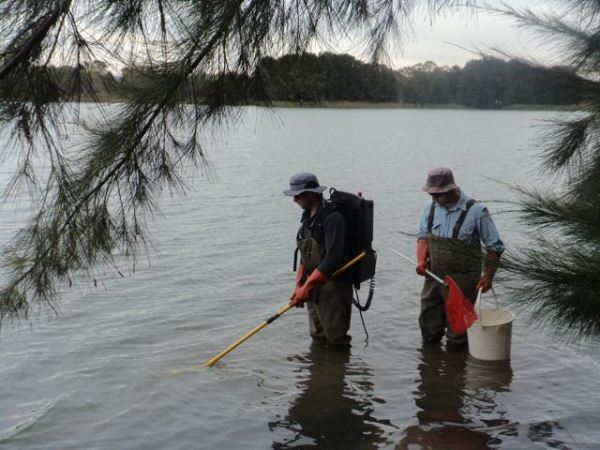Marcus Butler
13 May 2015: The discipline of applied ecology has now been made clearer thanks to a team of researchers at the University of Canberra.
The team, comprising of emeritus professor of environmental science Jim Hone, Dr Alistair Drake and adjunct professor Charles Krebs, all from the University’s Institute for Applied Ecology (IAE), have created a set of 25 principles covering all aspects of applied ecology with their work recently published in the Canadian journal, Environmental Reviews.
Lead author Professor Hone said the team began looking for common principles, because of a growing concern about the compartmentalisation of environmental management.
“We were seeing researchers drifting away from the shared conservation and habitat-remediation aims which should be incorporated throughout their work,” he said.
“We saw scientists working on increasingly specialised topics such as freshwater snails, grassland lizards or invasive weeds, but they were coming together around a common set of principles.”
Professor Hone said the principles they have come up with can be applied to everything from conservation of endangered species, to the management of diverse ecosystems and the control of animal pests and weeds.
Their work identified two broad types of principles within the discipline: empirical principles, which are common patterns; and prescriptive principles, which guide how ecological management should occur.
“It was surprising that the study found only three empirical principles relating to the effects of what people do when managing nature, in order to achieve desired outcomes,” he said.
“The first states that there is a positive relationship between how much effort is applied in management and the actual achievement of desired outcomes, but with diminishing returns.”
The second and third empirical principles deal with unintended consequences of management, such as an undesired increase in rabbit numbers following fox control or the evolving resistance to commonly used pesticides.
The team also proposed 22 prescriptive principles which are based on ethical behaviour, good governance, and scientific practice or which build on established findings of ecological science.
Professor Hone said a standard set of principles can be used by all levels of government and numerous voluntary land-care and conservation organisations which undertake management of land, freshwater and marine habitats.
“Ensuring that all these bodies are working towards an established, common set of goals will greatly improve their effectiveness in good ecological management.
“The new principles provides broad guidance on planning, implementation, and assessment of their programs – for some could be as simple as a checklist to gauge their performance,” Professor Hone said.



